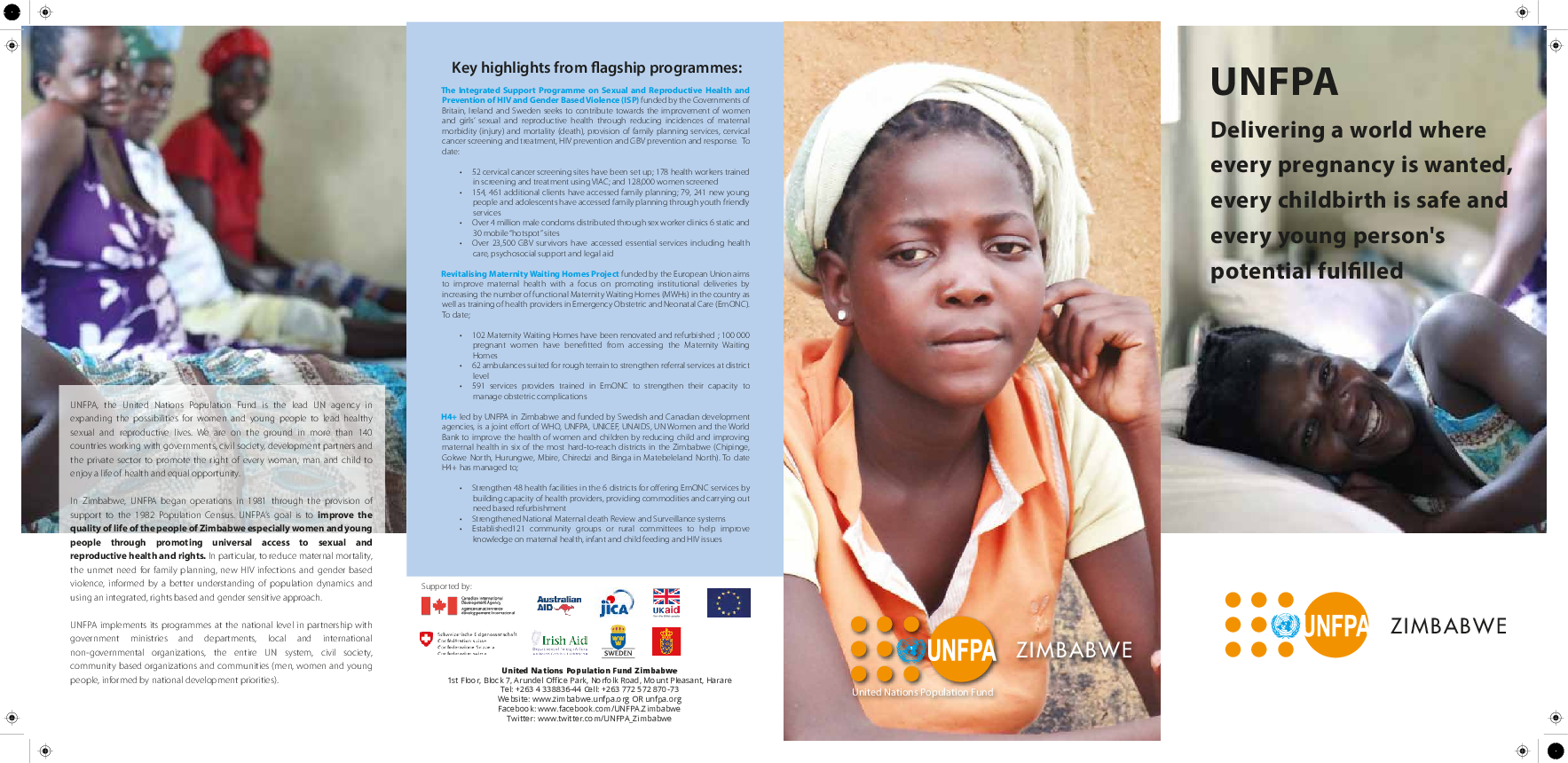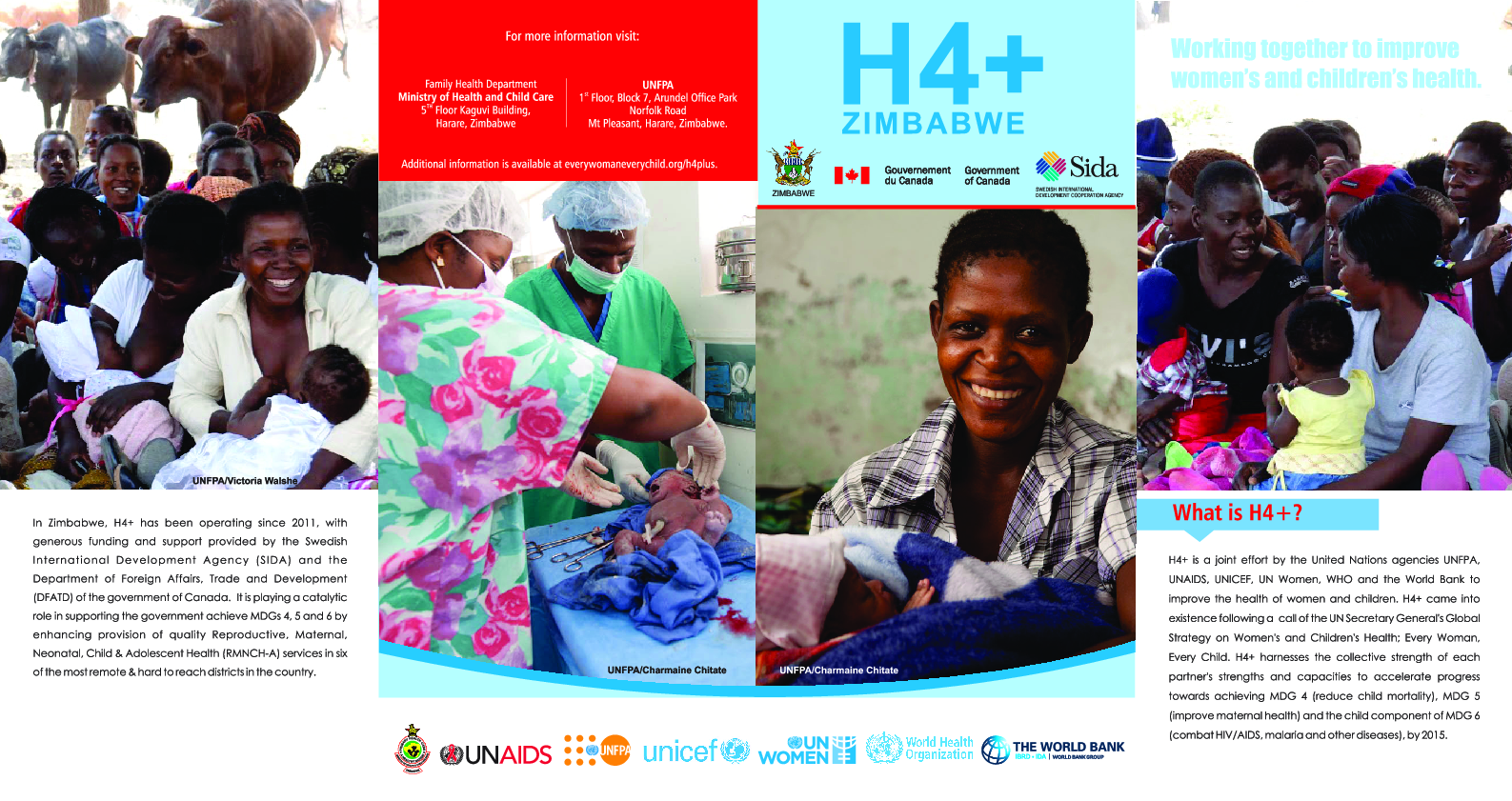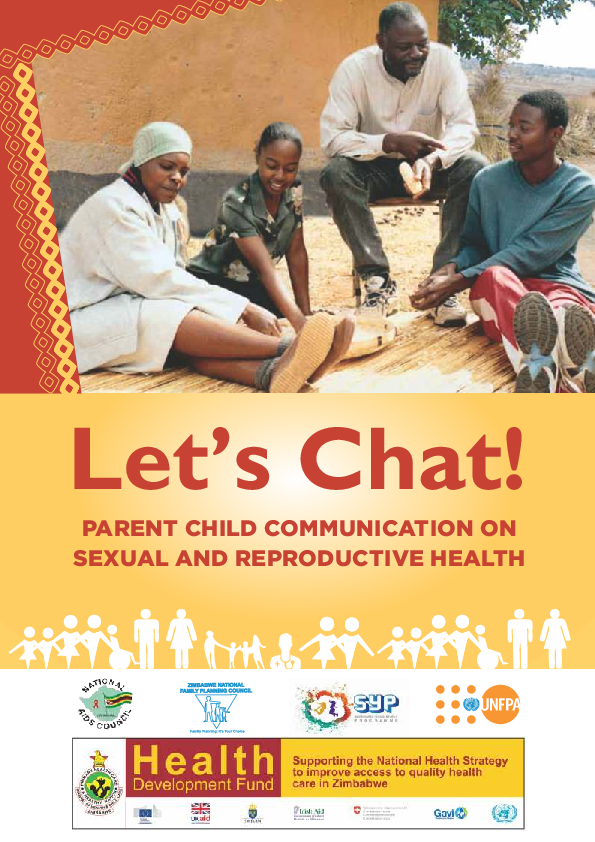You are here
New Releases
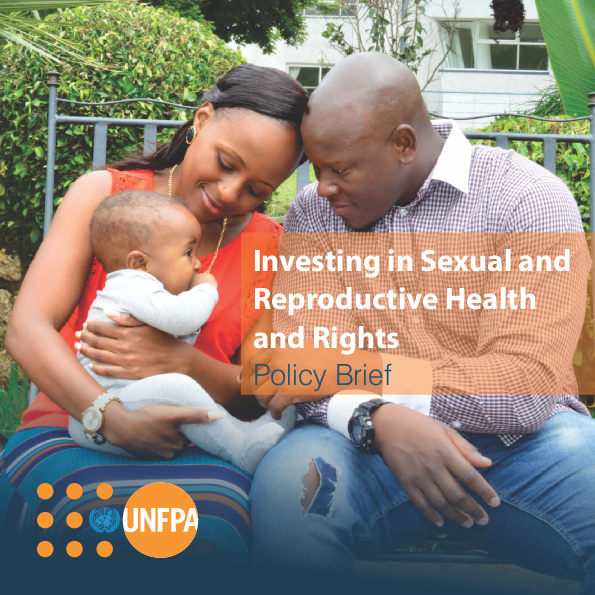
Policy Brief - Investing in Sexual and Reproductive Health and Rights
The new 2030 development agenda of the Sustainable Development Goals calls on all of us to step up our efforts in our areas of work to meet targets set. Indeed meeting these targets and achieving positive outcomes in the area of Sexual Reproductive Health requires huge investment and c o l l a b o r a This booklet highlights in greater detail some of the areas requiring our attention as various stakeholders and investment and support for improved outcomes on maternal health, particularly the prevention and treatment of cervical cancer and fistula, access to family planning, young people’s development and prevention and response to Gender Based Violence by all key stakeholders.
In Zimbabwe the new development agenda presents opportunities for achieving these positive outcomes. We know that many women and girls are dying from complications of child birth. At estimated 8 women and girls die every day due to pregnancy complications. Many other women and girls suffer serious birth injuries such as fistula. It is well known that every maternal death is associated with 20 to 50 cases of severe maternal morbidity or injuries. Until 2 years ago, women living with fistula could not receive treatment. We are now reaching women with life changing surgery but we still need to reach much more.
This booklet highlights in greater detail some of the areas requiring our attention as various stakeholders and investment and support for improved outcomes on maternal health, particularly the prevention and treatment of cervical cancer and fistula, access to family planning, young people’s development and prevention and response to Gender Based Violence.
The new 2030 development agenda of the Sustainable Development Goals calls on all of us to step up our efforts in our areas of work to meet targets set. Indeed meeting these targets and achieving positive outcomes in the area of Sexual Reproductive Health requires huge investment and c o l l a b o r a This booklet highlights in greater detail some of the areas requiring our attention as various stakeholders and investment and support for improved outcomes on maternal health, particularly the prevention and treatment of cervical cancer and fistula, access to family planning, young people’s development and prevention and response to Gender Based Violence by all key stakeholders.
In Zimbabwe the new development agenda presents opportunities for achieving these positive outcomes. We know that many women and girls are dying from complications of child birth. At estimated 8 women and girls die every day due to pregnancy complications. Many other women and girls suffer serious birth injuries such as fistula. It is well known that every maternal death is associated with 20 to 50 cases of severe maternal morbidity or injuries. Until 2 years ago, women living with fistula could not receive treatment. We are now reaching women with life changing surgery but we still need to reach much more.
This booklet highlights in greater detail some of the areas requiring our attention as various stakeholders and investment and support for improved outcomes on maternal health, particularly the prevention and treatment of cervical cancer and fistula, access to family planning, young people’s development and prevention and response to Gender Based Violence.
The new 2030 development agenda of the Sustainable Development Goals calls on all of us to step up our efforts in our areas of work to meet targets set. Indeed meeting these targets and achieving positive outcomes in the area of Sexual Reproductive Health requires huge investment and c o l l a b o r a This booklet highlights in greater detail some of the areas requiring our attention as various stakeholders and investment and support for improved outcomes on maternal health, particularly the prevention and treatment of cervical cancer and fistula, access to family planning, young people’s development and prevention and response to Gender Based Violence by all key stakeholders.
In Zimbabwe the new development agenda presents opportunities for achieving these positive outcomes. We know that many women and girls are dying from complications of child birth. At estimated 8 women and girls die every day due to pregnancy complications. Many other women and girls suffer serious birth injuries such as fistula. It is well known that every maternal death is associated with 20 to 50 cases of severe maternal morbidity or injuries. Until 2 years ago, women living with fistula could not receive treatment. We are now reaching women with life changing surgery but we still need to reach much more.
This booklet highlights in greater detail some of the areas requiring our attention as various stakeholders and investment and support for improved outcomes on maternal health, particularly the prevention and treatment of cervical cancer and fistula, access to family planning, young people’s development and prevention and response to Gender Based Violence.
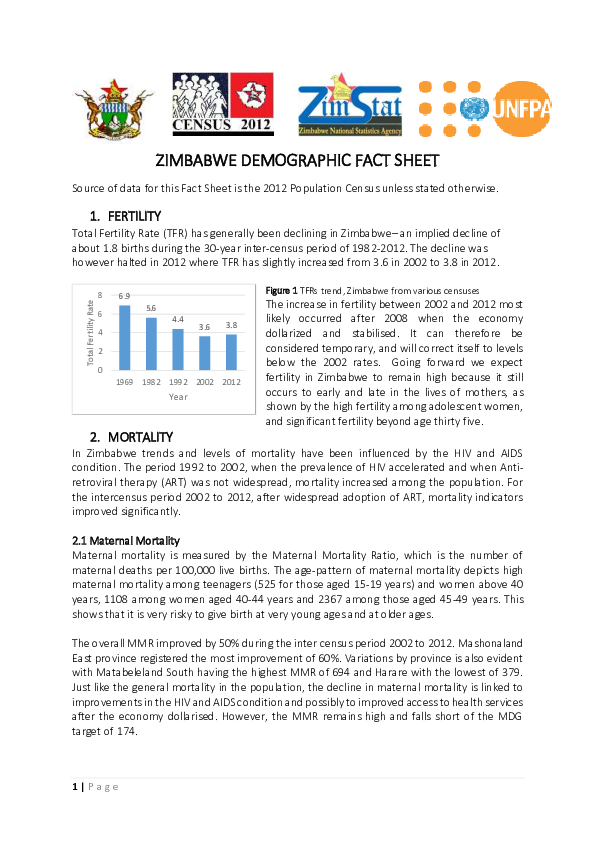
Zimbabwe 2012 Census Thematic Reports Fact Sheet
The fact sheet shows key findings from six Census Thematic reports that have been produced from the Zimbabwe 2012 Census. The thematic reports focusing on six areas, Labour Force Characteristics; Living Conditions; Disability; Women and Men; Children and Older Persons provide a detailed analysis of data collected during the 2012 Census. The results of the 2012 Census were released in December 2013. Statistics are a vital tool for economic and social development and reliable and timely data can help Zimbabwe in the formulation of development policies and programmes.
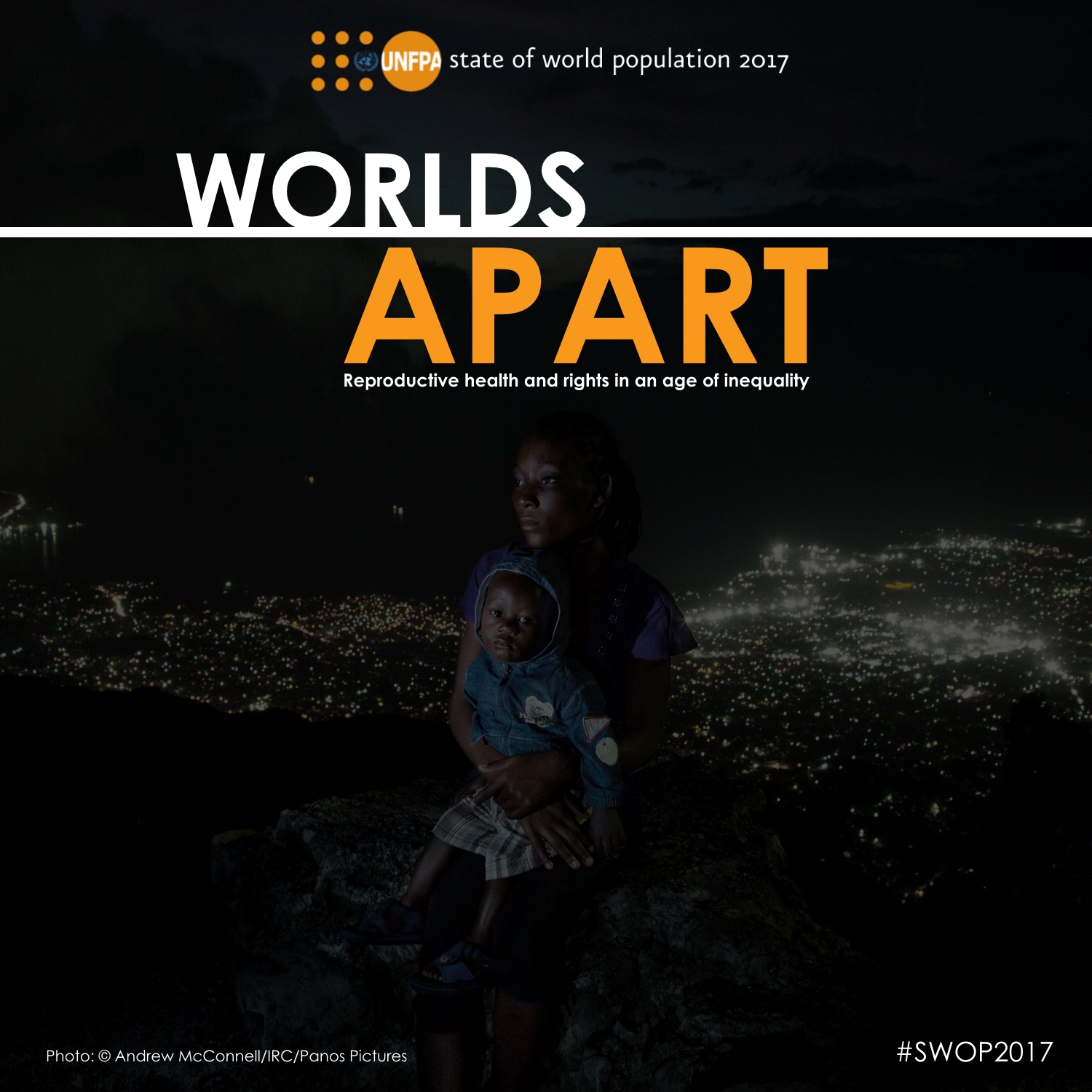
SWOP 2017 Worlds Apart: Reproductive health and rights in an age of inequality
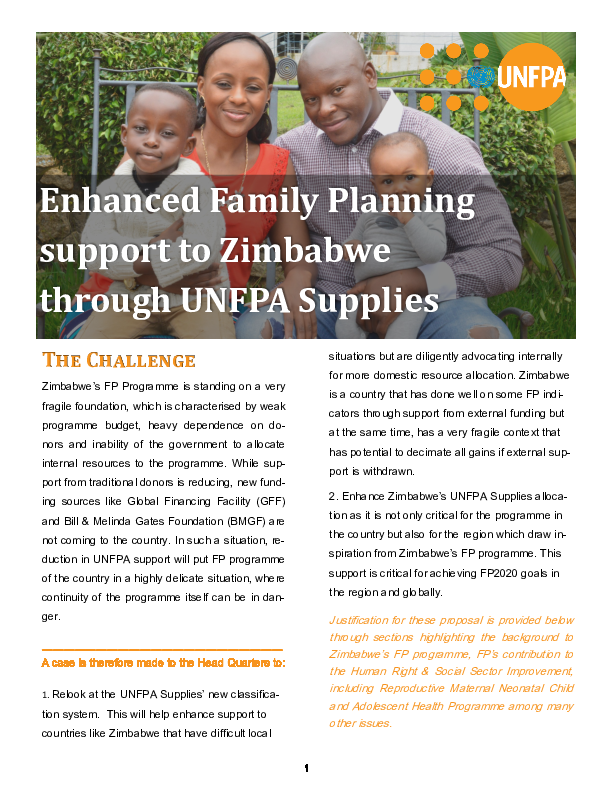
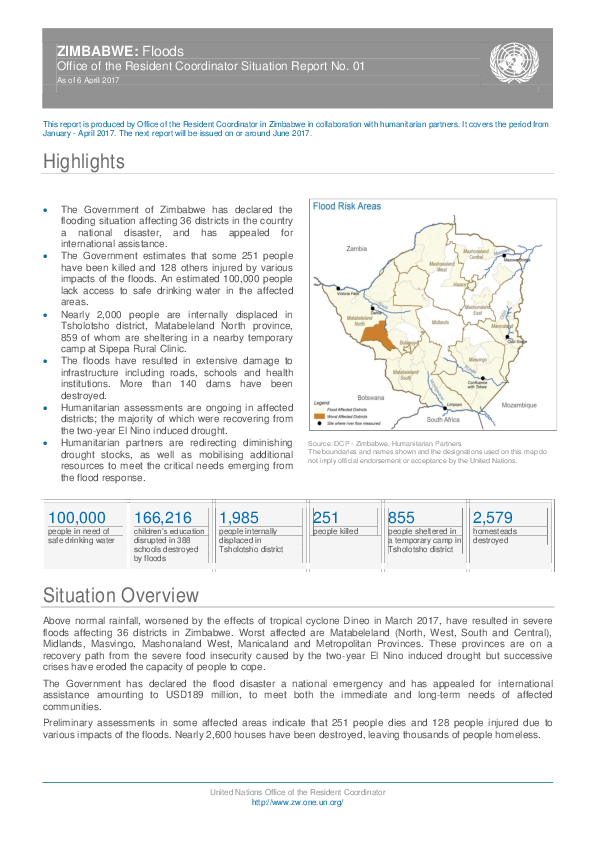
Zimbabwe Floods Situation Report 01
This report is produced by Office of the Resident Coordinator in Zimbabwe in collaboration with humanitarian partners. It covers the period from January - April 2017.
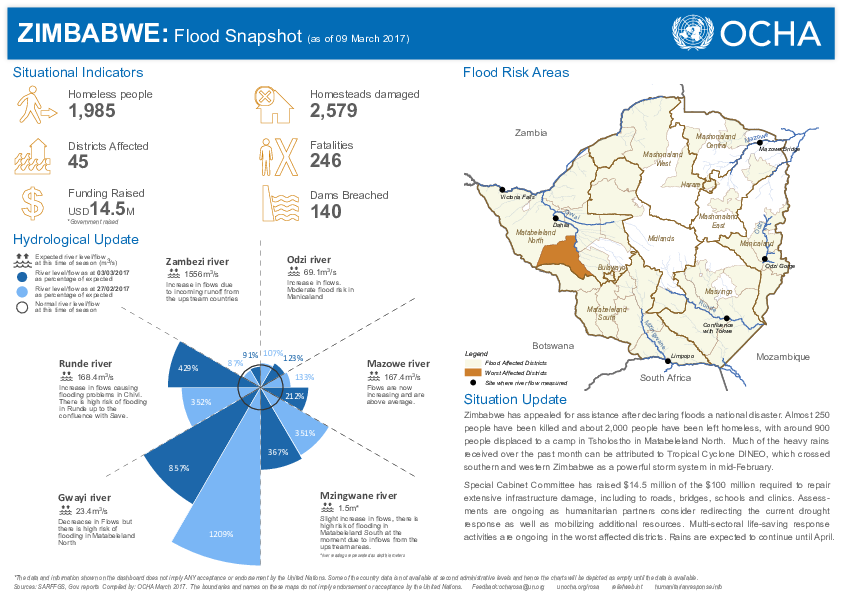
Zimbabwe: Flood Snapshot
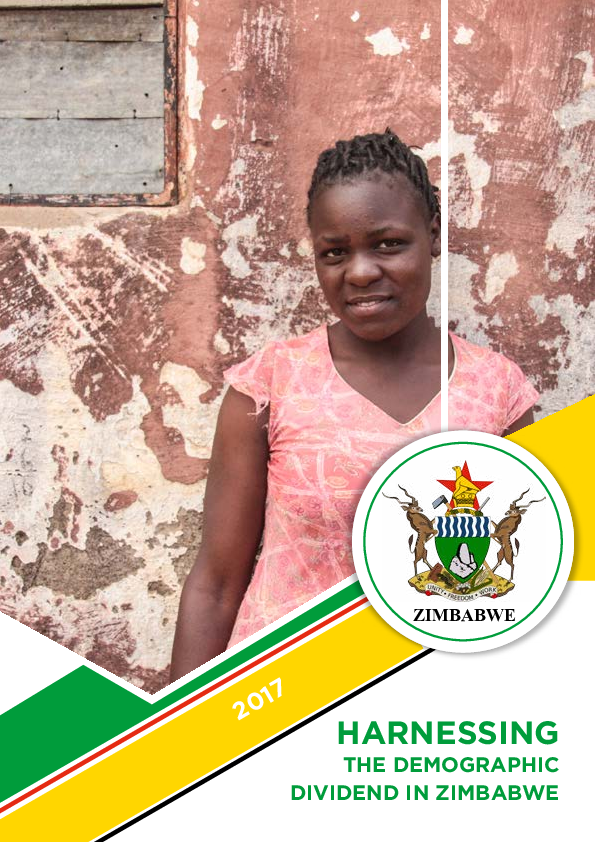
Harnessing the Demographic Dividend in Zimbabwe
The Zimbabwe Agenda for Socio-economic Transformation (Zim Asset) 2013-2018 lays a foundation for its long-term development aspirations that seek to achieve sustainable development and social equity anchored on indigenisation, empowerment and job creation. Demographic change has implications for the realisation of these ambitions. This study set out to analyse the population dynamics and age-structure changes in Zimbabwe in the medium to long-term and the implications these will have on the ability of the country to maximise its Demographic Dividend (DD). The demographic dividend refers to the temporary economic benefit that can arise from a significant increase in the ratio of working-age adults relative to young dependents that results from fertility decline - if this change is accompanied by sustained investments in education and skills development, health, job creation and good governance. The DD paradigm offers a framework that is congruent with the needs of Zimbabwe’s long-term development aspirations as well as the global post-2015 Sustainable Development Goals (SDG) agenda.
